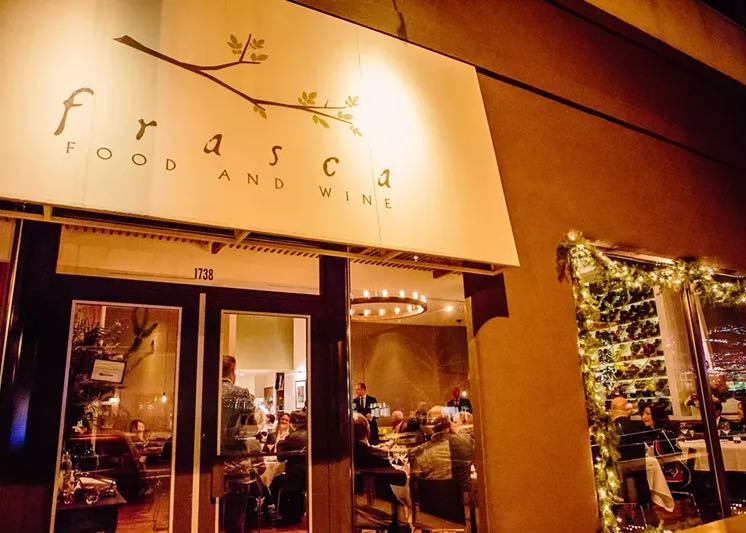Gulp! How Trump's Threatened Tariffs Could Affect Denver Wine Businesses (Westword)
Helen Xu
April 29, 2025

“I’m not going to stop serving and educating people about European wines just because of this."
“This isn’t an attack on the countries that it’s coming from, it’s an attack on U.S. small businesses that are working very, very hard to make America a great country,” says Bobby Stuckey, Master Sommelier and co-founder of Frasca Hospitality Group, talking about how President Donald Trump’s tariffs have affected Denver’s wine importers and sellers. And his interest is very personal: In addition to Frasca Hospitality, Stuckey is the co-owner of the Scarpetta Wine label and Benvenusa wine import company.
It’s been a tumultuous two months for the wine industry. On March 13, Trump threatened 200 percent tariffs on European wine, Champagne and spirits if Europe went ahead with a tariff on American whiskey (which itself was retaliation for the U.S. aluminum and steel tariffs). On April 2, “Liberation Day” Trump then announced a 20 percent additional tariff (on top of the across-the-board 10 percent) on the European Union to go into effect April 9. But a few days later, he suspended all additional tariffs for nine days except those involving China. Currently, the 10 percent baseline tariff remains in effect.
During this period, many wine importers paused imports because of the uncertainty. “He didn’t let us know if the wine on the water would be tariff free or was he going to tag everything? Was it going to be 200 percent? Was it going to be 50 percent? Would it be 10 percent?” notes Stuckey. The administration “was not giving American wine importers clarity on what was going to happen.”
Even a 10 percent tariff has larger impacts to a wine importer than the average person might realize. It’s common for distributors to have net 30 or net 60 payment terms with their vendors, requiring that the full payment is due thirty or sixty days after the inventory is shipped. This buffer time allows distributors to manage their cash flow so that they don’t have to outlay an entire payment before they even get to sell a single bottle. However, tariff payments are due as soon as the container hits the dock; without payment, the container either sits there (a separate headache) or gets sent back to the country of origin. Additionally, if the receiver needs to borrow money to pay the tariff bill, “it’s not a 10 percent tariff, it’s a 19 percent tariff because if you get a line of credit, you’re paying interest on it,” explains Stuckey.

